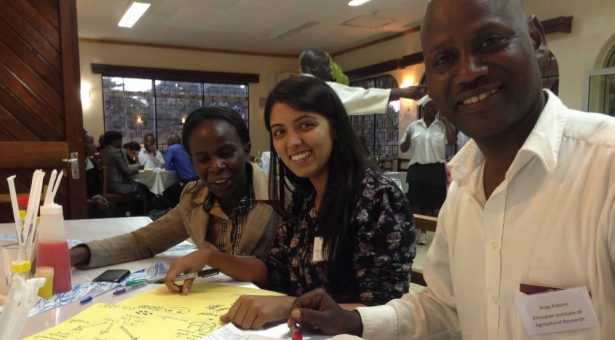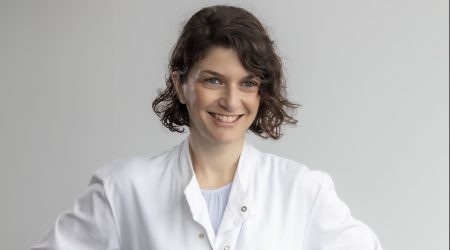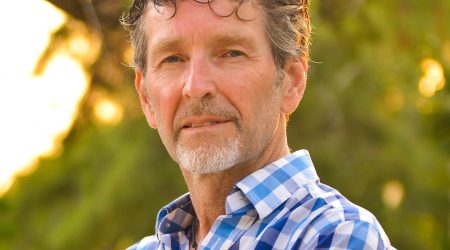Working on the ‘Scientific Soft Skills’ needed for biology careers

Over the last six years, scientists at the John Innes Centre have been boosting the confidence and careers of early career scientists across the globe through Scientific Soft Skills workshops.
Scientific Soft Skills play an essential part for anyone to advance their career, giving participants the confidence and capability to achieve their goals.
Beginning in 2014, Professor Cristobal Uauy and Dr Brande Wulff have been delivering short (2-4 day) workshops working on these skills to early career scientists, which started with a wheat trait discovery and training project including a couple of training workshops.
When asked, the PhD students from Africa and India identified that they had never received training in skills that are essential to progress their careers, such as presentation and writing skills.
“We asked them what they wanted, thinking it would be another “marker assisted selection” workshop, but they didn’t want that…” explains Brande.
Instead, it was a focus on soft skills that was requested and since then, Cristobal and Brande have conducted six workshops with more than 100 participants, from 27 countries.
Taking place over four days, the workshops’ format covers skills such as;
- Manuscript writing
- Presenting your research
- Writing CVs
- Interview skills
- Ethics in science
- Social media interactions
- Communicating with colleagues
- Travel awards
- Attending conferences
The training team always includes at least one junior member of their labs to bring their impressions and experiences. This successful combination has been greatly valued by the participants, which was identified from an anonymous survey, which was sent to a subset of the participants in June 2020.
For example, feedback from one attendee noted, “This mixture [of trainers] gave enough emphasis to the perspectives of each career stage, with more than [one] point of view within the same category. Besides, the presenters made a wonderful team, with some of the nicest presenters’ personalities I’ve ever had”.
A highlight of the survey’s results is presented below.
- 90% of participants agreed that attending a SSS workshop helped them progress their career – “[The training] made me go back and look at my CV and reconstruct it. I wasn’t ashamed to write about myself. I get many people now viewing me on my professional page, I get more job offers from recruiters compared to how my CV was structured previously.” Flora Adachi Asibe, Research Fellow and Ph.D. candidate, International Institute of Tropical Agriculture
- 95% of participants agreed that attending a SSS workshop increased their confidence in presenting their research
- 85% of participants agreed that attending a SSS workshop increased the quality of their research outputs – “My writing skills improved drastically I would say. I was in a position to write my thesis in six months… at the end of the day I produced one of the best theses within the institute.” David Livingstone Nsibo, Postdoctoral Fellow at the Forestry and Agricultural Biotechnology Institute, FABI, University of Pretoria, South Africa
- 83% of participants agreed that attending a SSS workshop increased their confidence in reaching out to researchers outside their lab – “Being taught by people highly regarded in their field, but also down to earth and friendly boosted my confidence in contacting and networking with others in high-up positions.” Anonymous
- 78% of participants agreed that attending SSS increased their confidence in applying for funding opportunities
- 64% of participants said SSS had helped them acquire a funding opportunity – “Using the improved skills, I successfully got two awards; an award for a fellowship (USDA-FAS Scientific Exchange fellowship program) that I am supposed to travel to United States of America and recently a training grant award through The Community Network for African Vector-Borne Plant Viruses (CONNECTED) program.. I applied and instantly I was successfully selected. So, for me I would say that the workshop had a great impact on that.” Florence Munguti, Kenya Plant Health Inspectorate (KEPHIS)
- 90% of participants said a SSS workshop made them more aware of research ethics
- 70% of participants said they had passed on the skills learnt to others at their home institution (of these presentation skills, research ethics and writing skills were the most commonly passed on skills)
Confirming that these short workshops, can positively impact on participants confidence, research outputs and overall career progression.
One of the core values of the workshops has been to propagate equality.
By providing essential scientific and communication skills to early career researchers, especially from low and middle-income countries, it gives them the confidence and capability to achieve their goals.



